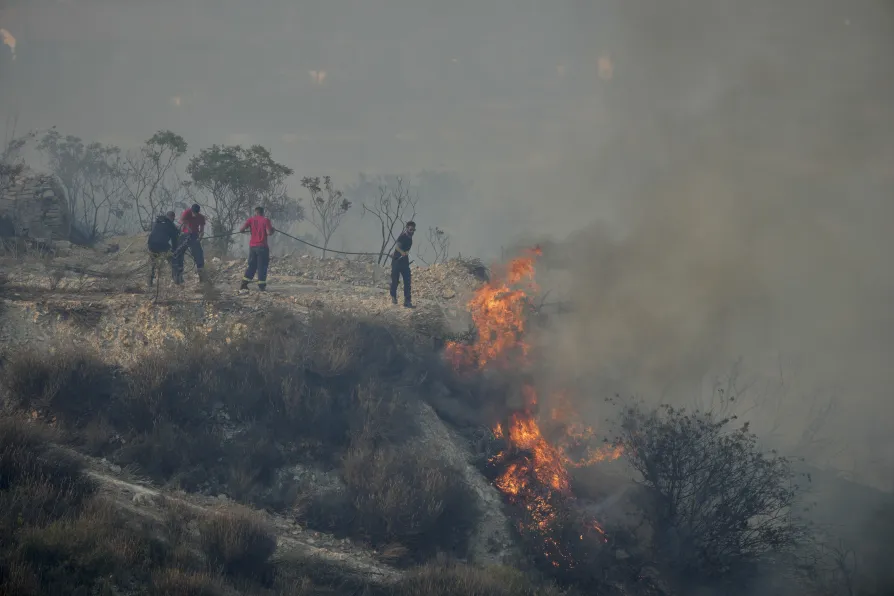
 Residents try to extinguish a blaze in Omodos village, Cyprus, during a wildfire on the southern side of the east Mediterranean island nation's Troodos mountain range, July 24, 2025
Residents try to extinguish a blaze in Omodos village, Cyprus, during a wildfire on the southern side of the east Mediterranean island nation's Troodos mountain range, July 24, 2025
CLIMATE change-fuelled heatwaves and dwindling rainfall made this summer’s wildfires in Turkey, Greece and Cyprus far more destructive, a new study said today.
The World Weather Attribution (WWA) study found the fires, which killed 20 people, forced 80,000 to evacuate and burned more than 1 million hectares, were 22 per cent more intense in 2025. It was Europe’s worst year on record for wildfires.
Hundreds of blazes in June and July were driven by extreme heat above 40°C, prolonged drought and strong winds.
WWA researchers called their findings “concerning.”
“Our study finds an extremely strong climate change signal towards hotter and drier conditions,” said Theodore Keeping of Imperial College.
“Today, with 1.3°C of warming, we are seeing new extremes in wildfire behaviour that has pushed firefighters to their limit.
“But we are heading for up to 3°C this century unless countries more rapidly transition away from fossil fuels.”
The study also found winter rainfall before the fires had dropped 14 per cent since the pre-industrial era, while week-long dry, hot spells are now 13 times more likely.










